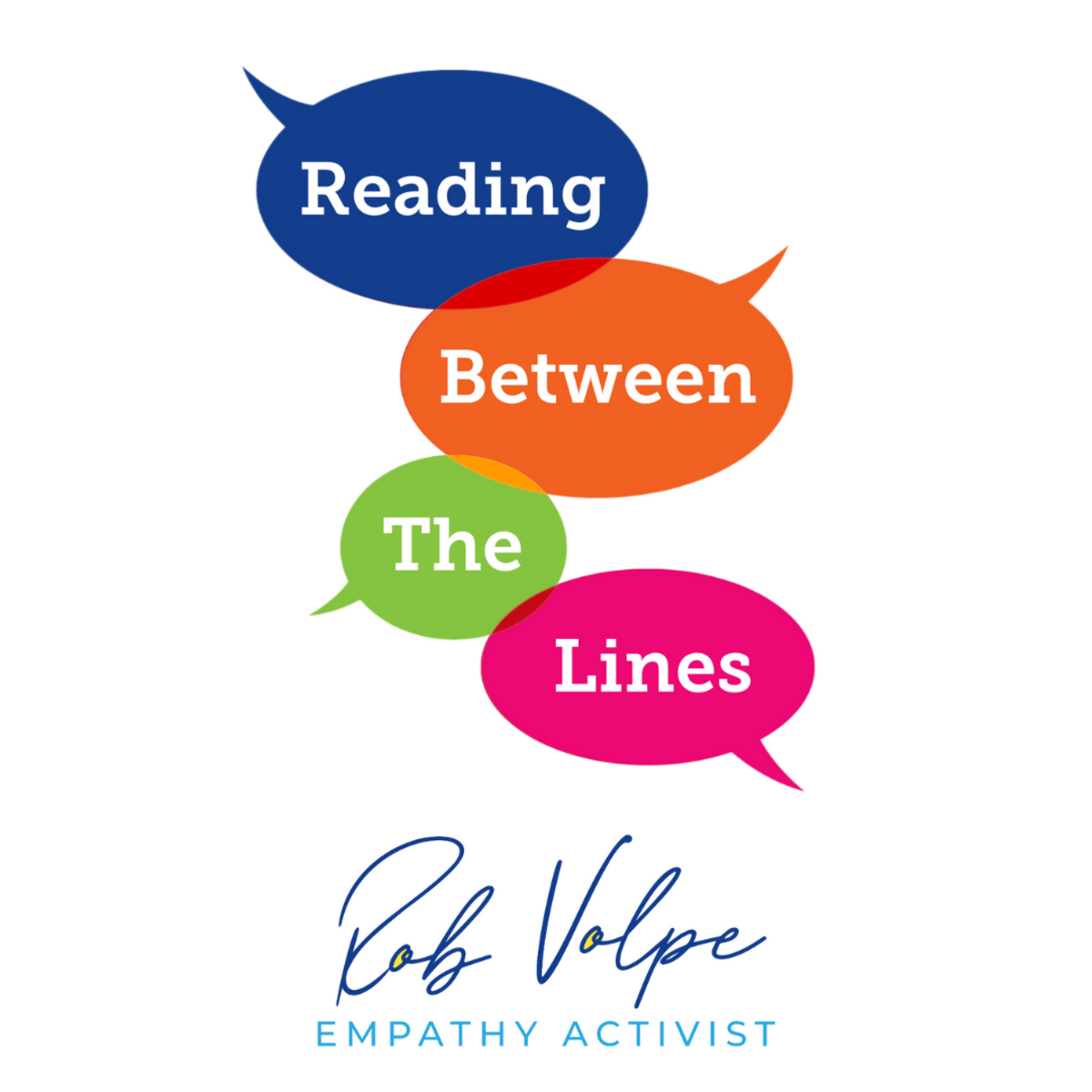Table of Contents
→ The Surgeon General’s Warning on Parenting
→ Live Q&A in Marin on October 5 with Maria Ross
→ B2B Marketing Exchange East - October 2
→ A Resource for Older Teens to Help Build Empathy
Hi! Hope you are having a great day!
Welcome to all the new members of the community - thank you for subscribing! Please forward this email to others you know that might be interested in strengthening their empathy muscles.
The content of this newsletter is shaped partly by what you respond to so please let me know your thoughts, questions and topics you’d like to explore with me.
As always, a quick reminder of what you can expect in each edition of Reading Between the Lines…
My thinking is here in the newsletter. Links are for diving deeper.
I strive to deliver ‘news you can use’.
I also share insights into human behavior and topics I’m thinking about.
I include amusing or interesting “slice of life” moments.
The Q&A feature is based on questions that come up in conversation - please send me your questions!
I’d like to hear your thoughts- ‘reply’ to this email or reach out directly to: [email protected]
Could Healthier Parenting Lead to More Empathetic Children?
Being a childless cat person doesn’t seem like such a bad life choice considering the Surgeon General’s recent warning about the negative mental health effects from modern day parenting. As this New York Times article points out, parenting today has reached peak stressfulness as many parents are over-extended trying to do everything they can to make sure their children have the best that’s achievable and are set-up for success. In other words, do what they can to control factors often beyond their control.
When I speak about the causes of the current empathy crisis in our society, one of the contributors that I discuss is how the way we parent has changed in the past 30 or so years. While today’s parents appear more engaged in their kids lives, it is taking away from opportunities for kids to be truly bored and have to figure out what to do. (I couch this with ‘appear’ because I know it isn’t ubiquitous and I don’t want to be dismissive of the engaged parents of yore).
Boredom can lead to forms of creative play - when we have to figure it out without the short cut of screens, we start to role play or create scenarios for our toys that we have to act out. If you hope to inhabit another character, it’s imperative that you understand where that character is coming from. The motivators, the origins of their behavior, all the things that will allow you to step into their shoes and respond as you believe they would respond. That’s using cognitive empathy and it’s born out of boredom.
A thought piece by psychologist Darby Saxe, also in The New York Times, makes the case that parents do need to ignore their children more often. There is a difference between ignoring and neglecting. Letting kids figure things out on their own builds a resilience that will serve kids well as they navigate life into adulthood.
Of course parents want the best for their kids. Rising inequity, increased competition and societal pressure has enabled the current state of parenting. Maybe, just maybe, it’s time to reflect and course correct slightly as the next generation of kids come of age and those kids, in return, may benefit from more empathic abilities.

As a gay couple, Charles and I made a choice to be cat dads. Here, Domino keeps an eye on the setting sun.
3 Tips to Help Your Kids Develop Their Empathy Muscle:
Encourage Creative Play - Role playing is great for building empathy. Whether it’s dress up, activity sets or just running around the back yard, the more kids are able to step into the shoes of others, the stronger their empathy muscle. No need to overdo it, just help them set the stage and see where they take it.
Less Screens, More Pages - Work with your kids to establish boundaries on screen time so that they have time to do other activities which can help build more empathy - like reading! Reading fiction or non-fiction can help kids develop empathy as they consider what it would be like to be the character they are reading about. Help your kids by talking with them about it - ask them what they think it would be like to be that character and be in those situations described in the book.
Talk to Your Kids - We all look for role models to show us the path and kids start by looking at home. Engage your kids in conversation (or the kids in your life) that helps them use empathy. Ask them if they can imagine what it would be like to be another person, or to see a situation from another person’s perspective. And use empathetic language and behavior in your conversations you have in front of your kids. You’ll be quietly giving your kids the tools they need for their future.
Live in Marin - October 5 - Maria Ross + Rob Volpe

My Empathy SuperFriend, Maria Ross, has just published her latest book, The Empathy Dilemma, which explores empathy for people in leadership roles. She leverages the latest research and thinking and contributes new frameworks to help readers understand how to put empathy to use in the workplace.
Join Maria and I for a live conversation and book signing on Saturday, October 5, at 1pm at Book Passage Corte Madera 51 Tamal Vista Blvd, Corte Madera, CA 94925
Attention B2B Marketers: Check out the B2B Marketing Exchange East Conference

If consumer brands are leaving $300M a year on the table by not infusing empathy in their customer experience, imagine what is happening on the B2B parts of business.
I’m excited to be presenting live and in-person in Atlanta on Wednesday, October 2 at the B2B Marketing Exchange East conference. My presentation is titled: The Missing Link in Marketing: How Empathy Influences Buyer Behavior.
If you know of a B2B marketer, please send them the info on this great event, and have them introduce themselves to me.
The Superpower Teens Need Today

I’ve always believed that empathy isn’t just a soft skill—it’s a superpower. And in today’s world, it’s more important than ever for teens to harness this ability. When I was younger, empathy was my survival tool—it helped me connect with others and navigate tough social situations. Now, teens are facing their own unique challenges: the constant pull of social media and a world that’s both more connected and more divided than ever.
We’re seeing studies show a troubling decline in empathy among young people, and I believe technology plays a part. While social media can be great for expressing yourself, it doesn’t always help foster real, meaningful connection. It remains self-ish.
The good news? Empathy is a skill you can build. Start by truly listening to others, asking thoughtful questions, and paying attention to how conversations make you feel. Even something as simple as putting down your phone and being fully present can deepen your relationships and help you understand the people around you.
If you’re interested in how empathy can transform not just your friendships, but your school life and future career, check out my conversation on The Smart Podcast. I share more about how empathy shapes our lives and practical tips you can start using today. Big thank you to Sonia for the conversation!
I hope you liked this edition.
Please help spread the word - pass this newsletter along to someone you know that might also enjoy it. Either forward this email or invite them to subscribe at the click of the button below.
Reading Between the Lines delivers of-the-moment insights into empathy and human behavior; expect practical tips on using the skill of empathy in everyday life and exclusive updates to keep my community close. All on a biweekly basis.


